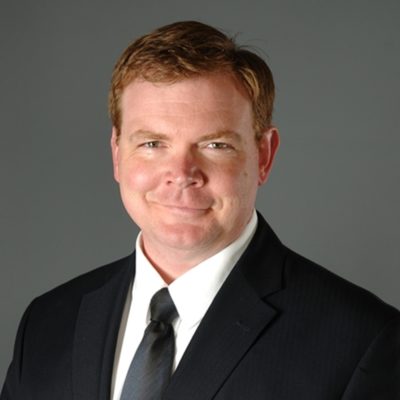Ed Cox

Law Firm:
Orsborn, Milani, Mitchell, & Goedken, L.L.P., IA
- Practices general practice law, agricultural law, real estate, property litigation, estate planning, and probate law
- Licensed to practice in Iowa and Missouri
- Represents farmers and landowners
Ed says:
“As we explored unique ways to incorporate conservation into land tenure arrangements, it caused me to think outside the box in terms of what those arrangements could look like, and how people could have some control over what happens on their land.”
Ed’s Background
It’s the nexus of agriculture, law, and conservation that really interests Ed Cox in agricultural law. During law school at Drake University, he became involved with the Agricultural Law Center and started to learn about the intersection of food policy with environmental law and conservation. Ed completed an internship with the Iowa Natural Heritage Foundation, the most prominent land trust in the state, and clerked at the Natural Resources Conservation Service, an agency of the U.S. Department of Agriculture. With these experiences as part of his education, when Ed was ready to launch his career he knew that he wanted to work in agriculture and land conservation.
After practicing as a Staff Attorney at Drake University’s Agricultural Law Center, Ed moved to private practice in 2014 and now works in Centerville, IA, at Orsborn, Milani, Mitchell, & Goedken, L.L.P. The firm is located in a small town and so needs to be somewhat general practice, but Ed’s portion of cases encompasses things like leasing, boundary disputes, estate planning, and hunting rights. In Ed’s region in southern Iowa, one emerging issue is landowners leasing land for farming and for hunting, and the conflicts that can arise. Hunting rights leases can be more specific than you might think – even including intellectual property rights for trophies. These cases often involve negotiating the interests of hunting leaseholders and farming leaseholders, which might be different or even conflicting.
Bringing Creativity to Farm Law
When Ed reflects on how he developed expertise in this area, he remembers that in law school at Drake he first learned about “typical” leases and land tenure arrangements, but then began to see and be involved in including ways to conserve land in these arrangements. Ed says that “you can be very creative” with documents like leases, trusts, and LLCs, and that “as we explored unique ways to incorporate conservation into land tenure arrangements, it caused me to think outside the box in terms of what those arrangements could look like, and how people could have some control over what happens on their land,” even when they’re not personally farming on it. Ed sees this experience as formative and says that it was one of the most important things that prepared him for private practice. He also works with two attorneys who are also farmers, and who can give “practical input” and a practical perspective on Ed’s work.
Ed emphasizes the importance of having a mentor for new and beginning attorneys, for big issues and for small ones. Whether inside or outside the same firm, he says that it’s nice for new attorneys to have someone to call when they need to get unstuck, or for quick questions, and he recommends, “ask as many questions as possible.” He credits Neil Hamilton, the director of the Agricultural Law Center at Drake, with being his own mentor. These days, Ed’s work arrangement in a firm with two offices means he functions much like a solo practitioner, but with several other attorneys a phone call away who can help brainstorm or answer a question on a range of areas of law.
The Center for Agriculture and Food Systems is an initiative of Vermont Law School, and this toolkit provides general legal information for educational purposes only. It is not meant to substitute, and should not be relied upon, for legal advice. Each farmer’s circumstances are unique, state laws vary, and the information contained herein is specific to the time of publication. Accordingly, for legal advice, please consult an attorney licensed in your state.

